Passing by Kampung Attap, you probably wouldn’t think much about the area.
There are old apartment complexes, neighbourhood businesses, and quiet streets that aren’t overly populated. Even parking is a breeze as there aren’t many visitors on a day-to-day basis.
But tucked in a corner is an unassuming-looking row of restored 1950s-era interconnected shophouses called Zhongshan Building.
Once housing the Selangor Zhongshan Association, it slowly fell into disrepair as previous tenants neglected it and moved out. That is, until 2017 when it was converted into an arts hub housing a close-knit community of creatives.
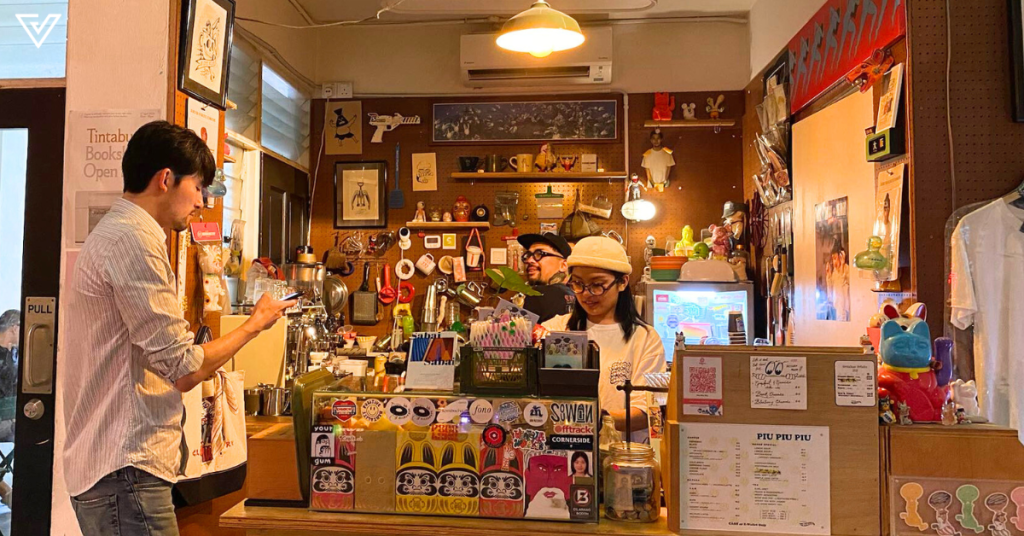
And located on the first floor (80A) is Piu Piu Piu, a rather hidden cafe that’s both casual yet intimate.
“They have to come and feel”
When I first reached out to Unagi, the operator behind the bar (as he likes to call himself), it took us a while to set up the email interview.
Even then, he kept his answers intentionally brief. I first thought this was his way of keeping a mysterious front for the business. After all, he’s been known by the nickname Unagi for 15 years now.
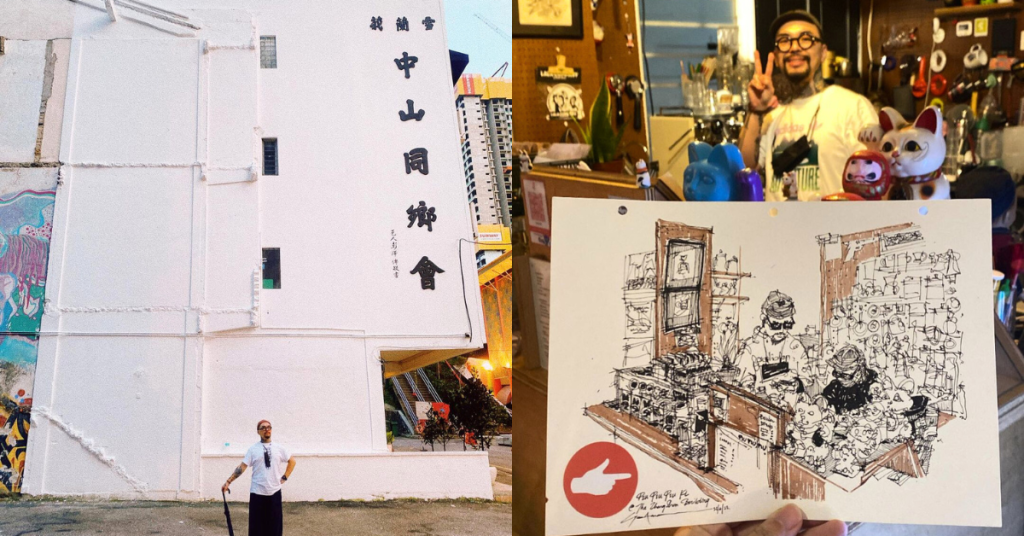
But the reasoning behind it was much simpler—“To know more [about Piu Piu Piu], they (customers) have to come and feel [the space].”
So on a bright Saturday afternoon, I did just that and paid the cafe a visit and properly understood what Unagi meant.
True to his description, Piu Piu Piu is a place for anyone who loves a break from the bustling city.
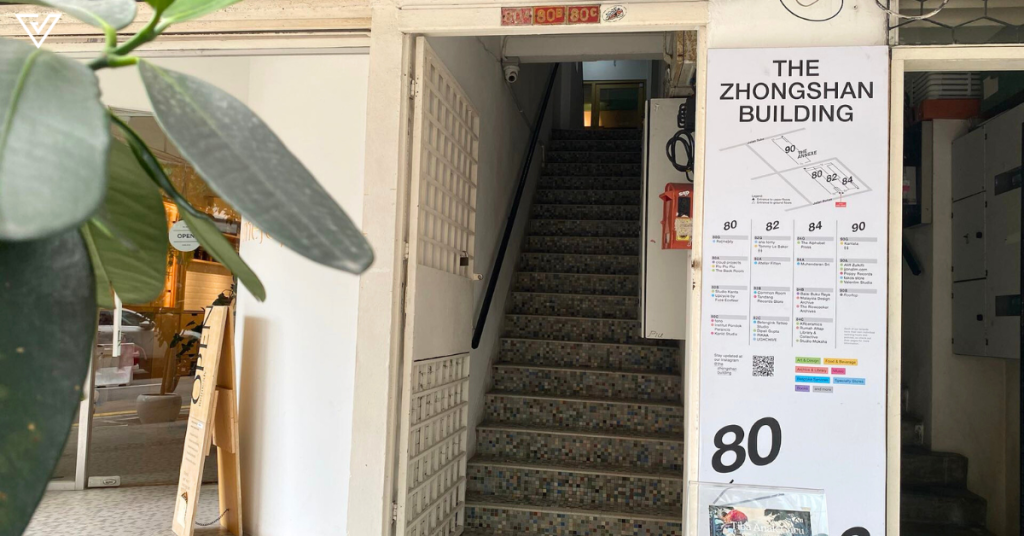
It might surprise you if you don’t look at the map, but Zhongshan Building is just a stone’s throw away from KL’s busy Chinatown.
This also makes it accessible for commuters who prefer taking the trains, which was how we found our way there. I recommend going on foot from the Pasar Seni train station because the routes are quite scenic and let you explore the city even more.
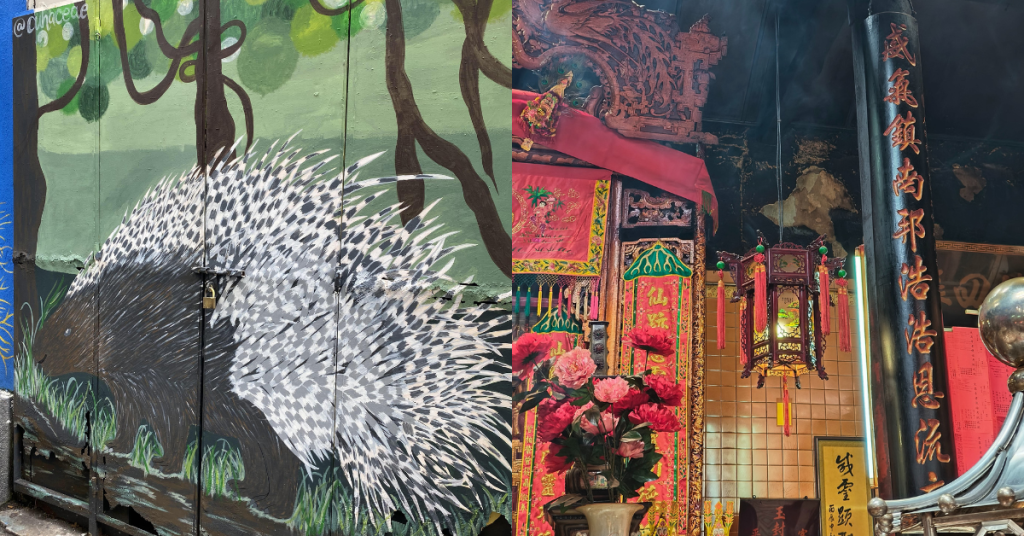
A mish-mash of childlike curiosities
You might be thinking, “What does ‘Piu Piu Piu’ even mean?” I had the same thought about Unagi’s choice of cafe name too.
“Work can be fun when you love it,” he replied candidly. During his childhood days, one of the happiest times was when he played with water guns. “We all make the sound effect, ‘pew pew pew’ while wetting each other.”
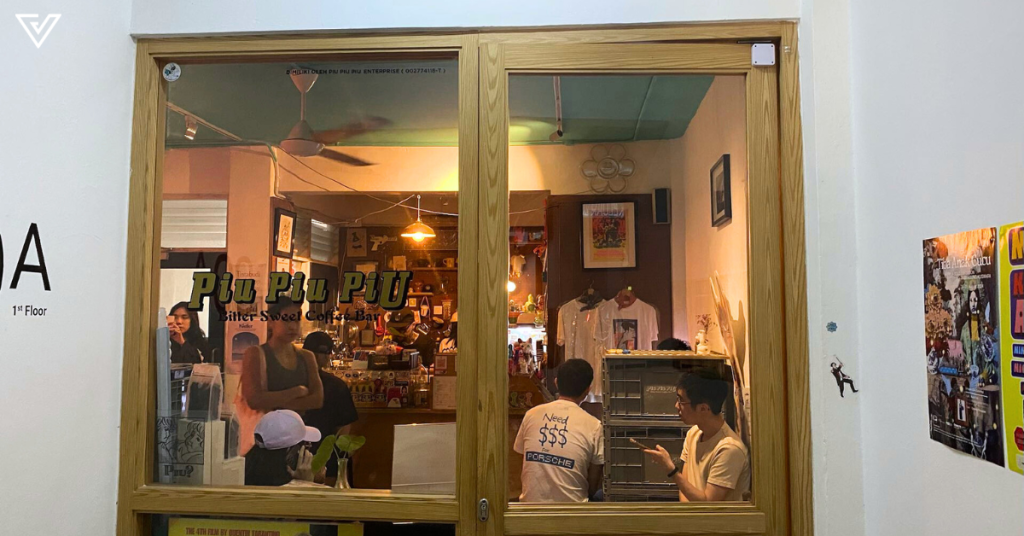
In that same light, he hopes to invoke a similar youthful sense of wonder and joy when people step into his cafe, which was certainly the case when we visited.
From the outside looking in, you’d be hard-pressed to not wonder how the cafe operates in such a compact space. Half the store was just the barista’s station while the other half was decked out with a wide array of trinkets and stools with small coffee tables.
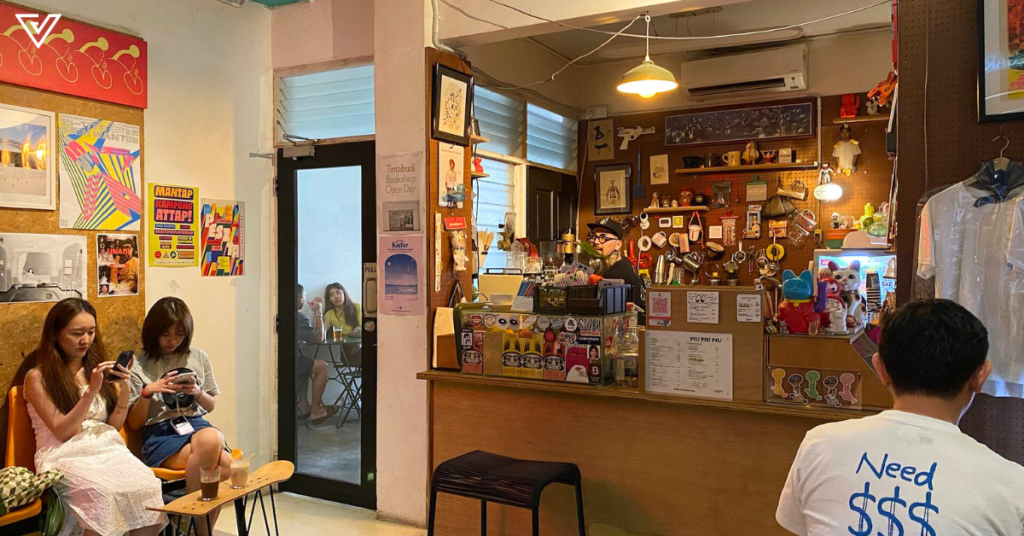
Everywhere you turn here, you’ll find mismatching bits and bobs, posters, hand-drawn sketches, and merchandise from local artists.
There’s even a motorcycle helmet on the wall with a cutout of someone’s face plastered on. I’m not too sure who he is but the sight is amusing nonetheless.
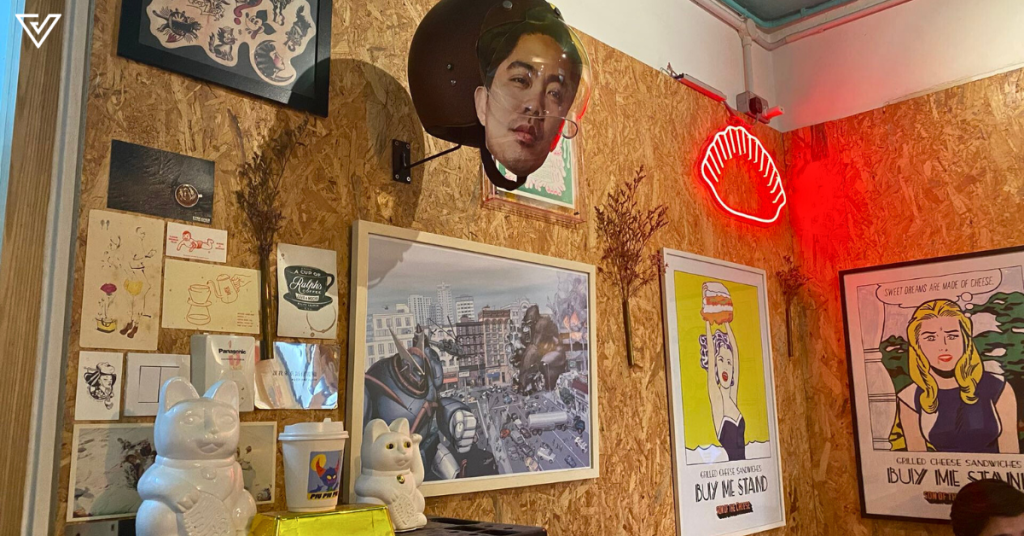
It also perfectly captures the essence of the cafe, a space where odd mixes can come together with chaotic charm.
It’s about fostering real connections
Looks can be deceiving, though, because Piu Piu Piu isn’t as small as you think it is.
To the left of the barista counter is a door that leads you to the cafe’s outdoor section. This is where we took our seats and had a brief conversation with the soft-spoken Unagi to learn more about the space.
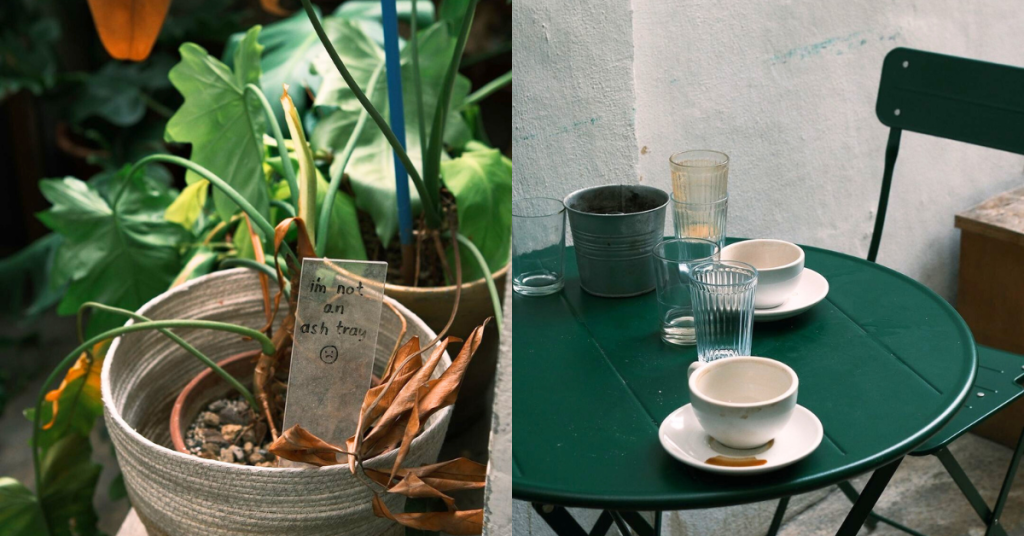
He explained that he intentionally opened Piu Piu Piu to be a small and quaint cafe. As such, you won’t find trendy tables or bedazzled decor. Even the tableware isn’t over-the-top fancy.
His focus is instead on creating a welcoming environment that lets you kick back and relax.
A large part of his inspiration came from Japan and their customer service culture. By having a little pocket of his own space, he’s able to foster a close relationship with his community of patrons. Most of them come from different backgrounds and range from 20 to 60 years old.
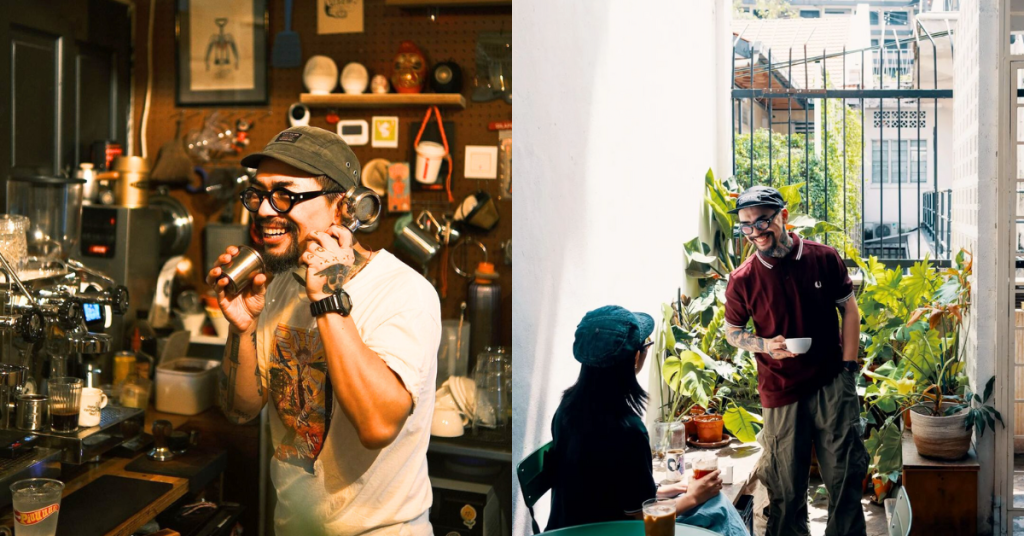
He also hopes visitors will take the time to disconnect from their gadgets and engage in conversation with one another.
Of course, he’s realistic as well. You can’t do what you love without some funds to run the business, and balancing passion and profits can be tough. But Unagi doesn’t mind the challenge. In his own words, “It’s hard but worth it.”
Of good drinks and company
As a coffee enthusiast, a good chunk of Piu Piu Piu’s menu consists of this caffeinated beverage. There’s the usual offerings like espresso, affogato, and mocha.
But Unagi doesn’t limit himself to just brewing up good coffee, something that he’s been doing at home for as long as he can remember.
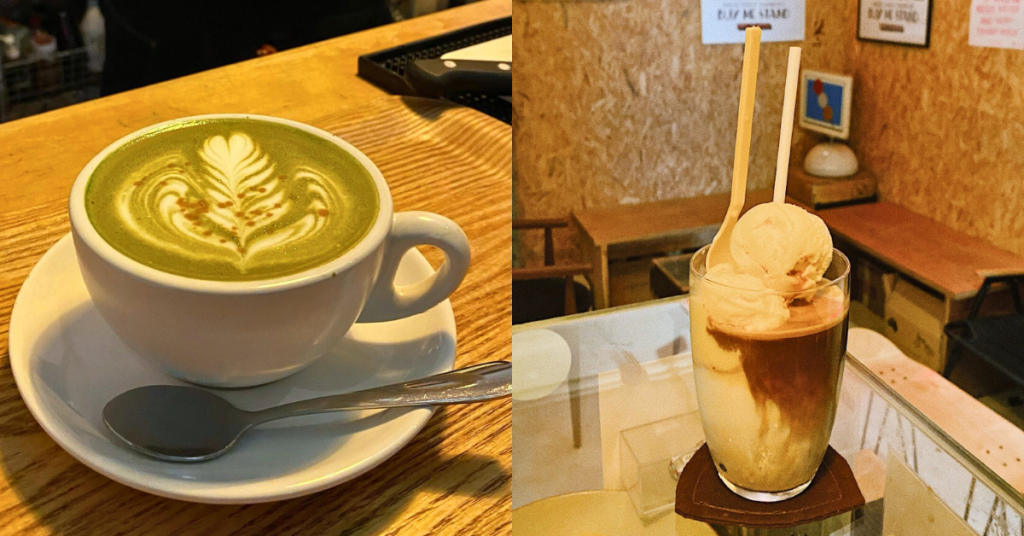
Some of the cafe’s house specials are more tea-based. For example, there’s the Matcha-Nade (matcha lemonade) and Chrysanthemilk (chrysanthemum milk).
For treats, you could opt for some of the desserts that they have. These are usually cakes and are actually baked by Unagi’s friends who sell them to the cafe.
If you don’t feel like talking much, there’s also an art gallery “hidden” in the back section of the cafe. It’s called “The Back Room” and typically exhibits local artworks every couple of weeks.
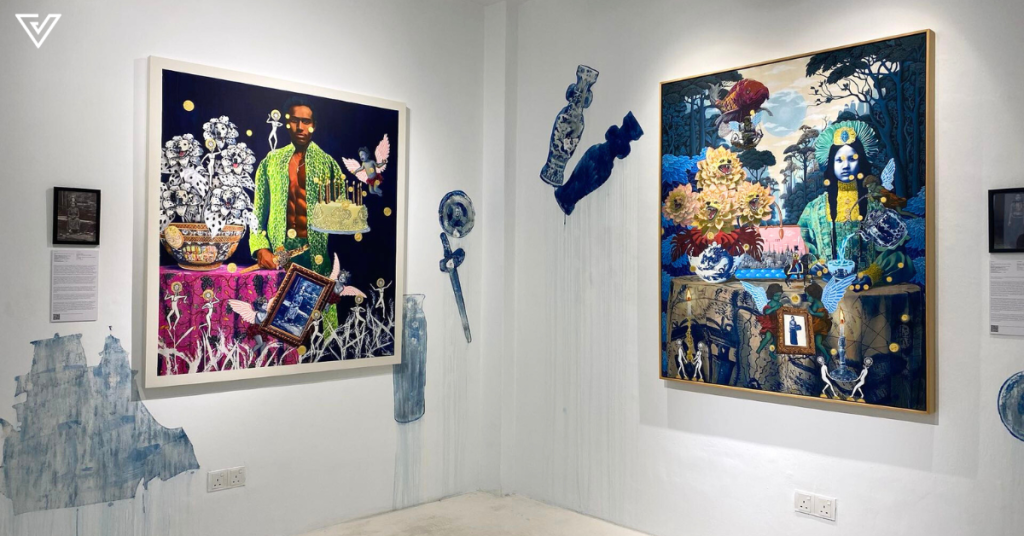
Personally, I’d recommend finding a seat outside because as the day goes by, the sun changes the setting of the cafe. In turn, this changes the vibe and scenery of the space, giving patrons a more melancholic feel as the sun sets.
Our time at Piu Piu Piu was short-lived, but even then, I was able to understand Unagi’s vision for the space.
The man himself, however, remained as mysterious as ever, keeping his background under wraps, only disclosing that he had at least four years of local F&B experience prior to opening Piu Piu Piu.
But as he said, the best way to understand him and his business would be to personally visit his store, and hopefully, you’ll find him behind the bar to get more stories out of him.
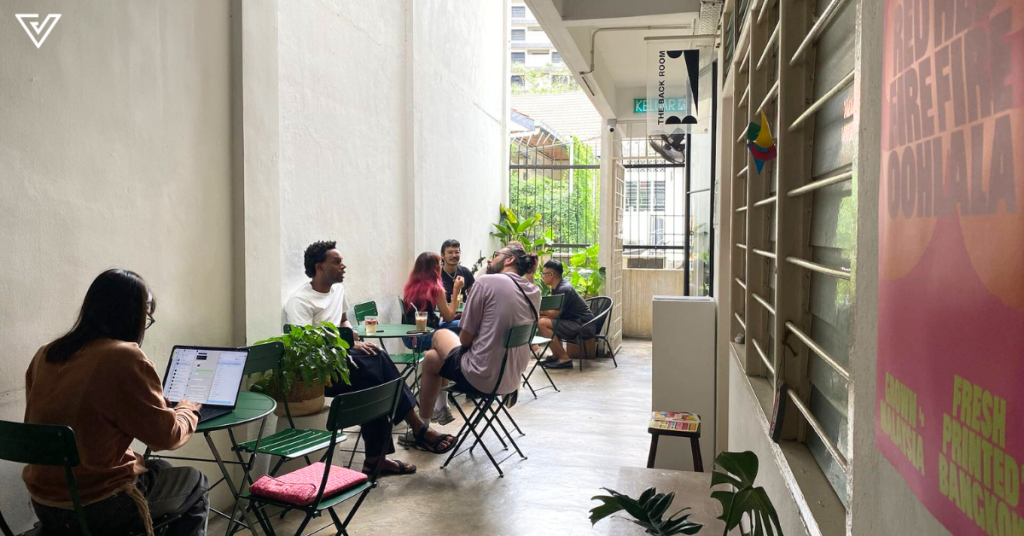
- Learn more about Piu Piu Piu here.
- Read other articles we’ve written about Malaysian startups here.
Featured Image Credit: Wirda Ashikin / Piu Piu Piu

